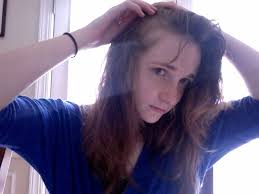Do you have a friend or family member that is exhibiting signs of trichotillomania? It can be a very difficult topic to broach someone with especially if that person is the one that is showing signs and symptoms of this mental disorder. Many people may sit around and pull their hair without even being aware of their actions. Just because someone likes to twirl or play with their hair does not mean they actually have this disorder.
Combination
Trichotillomania victims will have combination of mental disorders. Some other mental disorders that are related to the hair pulling disorder includes;
- Anxiety
- Depression
- Obsessive Compulsive Disorder
- Attention Deficient Hyperactivity Disorder
This is not to say that everyone with exhibit with all of the disorders. They will most likely just have one or two of them.
Causes
There is not known cause for hair pulling or skin pinching disorders, but experts continue to study the disease and determined to find out it’s true cause. Some experts feel that genetics may play a factor in the disease.

Diagnoses
Like most other mental disorders, trichotillomania, is not diagnosed by medical testing. Most psychologists will determine if a person has this disorder by the exhibiting signs and symptoms. It is obvious is most cases that someone is repetitively pulling their hair because they will show some signs of baldness.
Abuse
Not everyone, who has a mental disorder, has been physically or emotionally abused, by his or her parents, when he or she was a child. This is only a myth, but there are some cases that this may be true. It is important that if previous or current child abuse is the underlying cause for anxiety and depression that the child is pulled out of their home and placed somewhere save from this mistreatment. Once the child is safe it will be time to start providing mental health counseling to prevent further damage from occurring.
Body Dysmorphia
Many people with trichotillomania will also have body dysmorphia. This is when they see their body image in a totally different way than it really looks. A victim of this disease will see body flaws such as; uneven smile, saggy skin, crooked nose, or other body image flaws. While they may be perfectly beautiful on the outside, they are suffering on the inside. They are most likely ashamed of their bald spots and will go to all extremes to conceal them with caps or bandanas.

Prescription Medicine
Experts have not found a specific trichotillomania medication that can cure or even help this disease. Medications such as; anti-anxieties, anti-depressant, and hyper activity drugs are often used in a combination with counseling and self help groups. One will not work without the other so it is important that you take your medications as prescribed and never miss group meetings. Being diligent and dedicated to your treatment will help improve your symptoms over a shorter period of time than if you are lazy. Never skip doses of your prescription medication because it will not be therapeutic in your body and may be ineffective toward helping relieve your symptoms.
Carol Twain was diagnosed with trichotillomania. She admits to being in denial about disorder in the beginning but with the help of her friends she continues to improve and live a healthy lifestyle.

